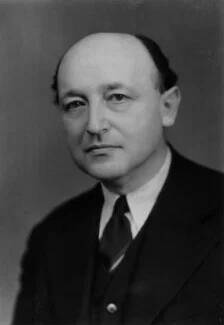Karl Mannheim

A Sociologist of Knowledge and Social Thought
Karl Mannheim, born in 1893 in Budapest, Hungary, was a prominent sociologist known for his significant contributions to the fields of knowledge sociology, political and social roles of the intellectual elite, generational studies, ideologies, and utopias. He was the only child of a reasonably affluent family.
Mannheim's academic journey took him to Budapest and Berlin, where he studied under notable figures such as Georg Simmel. In 1919, he was forced to flee Hungary due to the persecution of left-wing intellectuals and continued his studies in Freiburg and Heidelberg, including studying with Alfred Weber.
In 1922, Mannheim earned his doctorate in philosophy and went on to write his most important German-language sociological essays between 1921 and 1933. In 1925, he became a Privatdozent in sociology at the University of Heidelberg and married Juliska Lang, a psychologist interested in psychoanalysis.
During his academic career, Mannheim experienced two distinct phases. The first, from 1922 to 1933, focused on philosophy and knowledge sociology and had a Marxist orientation. It was characterized by abstract and theoretical work with limited political engagement. In contrast, the second phase, from 1933 to 1947, centered on political sociology and adopted a Durkheimian perspective. This phase was more practical and policy-oriented, reflecting Mannheim's increased political engagement.
Despite this shift, Mannheim maintained continuity in his interest in the role of intellectuals throughout his career.
In his English-language works, published posthumously, Mannheim's ideas found a broader audience. Some notable titles include "Ideology and Utopia" (1936), "Man and Society in an Age of Reconstruction" (1940), "A Diagnosis of Our Time: Wartime Essays of a Sociologist" (1943), and "Freedom, Power, and Democratic Planning" (1950).
Several books have been written about Karl Mannheim's life and work, including Kurt H. Wolff's "From Karl Mannheim" (1971) and David Kettler's "Karl Mannheim" (1984).
Mannheim's sociology of knowledge emphasized the connection between ideas and their social contexts. He argued that knowledge is a product of social processes within groups of people and is intimately tied to social situations, contexts, and perspectives. Mannheim believed that all knowledge is perspectival, local, and bound to specific times, societies, classes, and generations.
His work laid the foundation for the sociology of knowledge and influenced thinking about the social construction of reality, sociology of science, and actor-network theory. Mannheim's ideas continue to shape sociological discussions on how social structures and ideas are intertwined and how intellectuals navigate various social and historical perspectives.
Karl Mannheim's legacy endures as a thinker who challenged rigid dogmas in both German sociology and Marxism, offering a fresh perspective on the dynamic relationship between society and knowledge.
